Johns Hopkins UniversityEst. 1876
America’s First Research University
By the time he was in kindergarten, Emerson Lee knew he wanted to pursue a career in medicine. What path he would take to reach that goal varied, beginning with a 5-year-old’s sense of scale and the ever-present influence of Clifford the Big Red Dog — the bigger the knife, the better the surgeon.
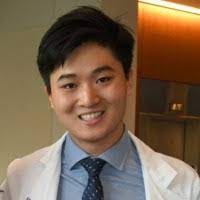
“Over time, thankfully, I developed a more nuanced view of medicine,” Lee says.
Now a student at the Johns Hopkins School of Medicine (SOM), Lee has traded his oversized scalpel for an interest in radiation oncology and is participating in a yearlong program to embark on original scholarship in the field.
The Dean’s Year of Research is usually taken between the third and fourth years of medical school, and the 10 awarded students are given a stipend and health insurance for the 12 months of investigation. While the additional year of study and faculty mentorship makes Hopkins students even more competitive for residency programs, Mary Catherine Beach, MD, the inaugural director of the Office of Medical Student Research, says the year also gives students the opportunity to discover their passions in medicine.
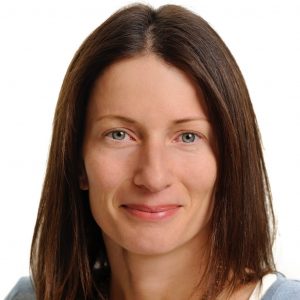
“Not only do they completely enjoy the process of research, it gives them a sense of purpose,” Beach says, adding projects explore basic science, public health, ethics, and clinical and patient-oriented research. “It’s exciting because there’s a sense of discovery. You’re working on something that the world doesn’t yet know or understand.”
Lee, the Sidney L Saltzstein, M.D. ’54, M.P.H. Endowed Fund for Medical Student Cancer Research recipient, is using the year to work on cancer-related projects. He’s partnering with faculty mentors to study radiation side effects, ways of administering radiation to patients to improve their long-term survival, how to reduce radiation-induced skin and mucosal damage in patients with neck cancer, and potential novel therapeutics for brain cancer.
In addition to pursuing research in radiation oncology, Lee is also taking time to explore his humanistic interests, like poetry, without having to worry about the financial burden of an additional year of medical school.
“Academia can often be single-minded. It’s nice to have the time to be able to not just work on research, but also pursue some personal interests before going headlong to residency,” he says, adding being the recipient of a named award goes beyond financial support. “It’s an honor to be able to carry this torch forward. It’s something that I think about when I try and consider how to make the best impact in the lives of these patients through the research that I’m doing.”
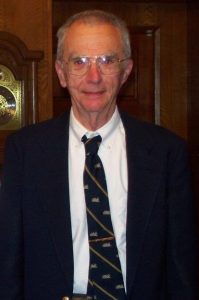
Sally Saltzstein, who established the fund in memory of her husband, says “Sid” would encourage all people in medicine to have interests beyond their field. He collected a library’s worth of Civil War books, loved to travel across the country by train, and was active in the Sudden Infant Death Syndrome Foundation.
“The pleasure is in hoping that other people will benefit like Sid did in getting the education and opportunities at Hopkins,” she says. “There’s more to medicine than just the knowledge. It’s knowing that patients are people and need to be treated as humans.”
Lauren Claus arrived in medicine through her interest in people. Also a Dean’s Year of Research participant, she discovered a drive to improve patients’ lives through medicine as an undergraduate English major working on a hospital story-sharing platform.
“During medical school, I appreciated every opportunity to help families and patients through parent counseling and education, in addition to providing medical treatments,” she says. “That passion brought me to the field of pediatrics.”
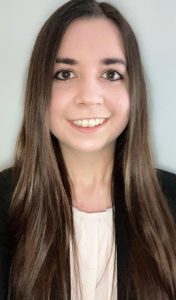
As the Doris Dean Parrish Klein Memorial Fund recipient, Claus is using her research year to improve families’ experiences in health care settings. She’s contributing to a project that seeks to implement motivational interviewing techniques in safe sleep counseling for the parents of infants, which may improve adherence with safe sleep recommendations and in turn improve infant health outcomes.
Claus is also investigating the presence of implicit bias in conversations surgeons have with parents of pediatric patients, something that connects her with Tom and Charity Dey, who established the Doris Dean Parrish Klein Memorial Fund in honor of Charity’s mother. Both of the Deys’ children underwent pediatric surgery.
“This is critical research,” Tom says. “We could really identify with it because you feel helpless and out of control. As a parent, you’re giving your child up, and you don’t really know what’s going on.”
Claus says the fund has allowed her to fully dedicate herself to research with her faculty mentors over the past year. She’s also been able to learn new skills that will help throughout her career in medicine.
“I appreciate how this experience has allowed me to gain both concrete skills and future aspirations for what questions I will seek to answer throughout my career,” she says.
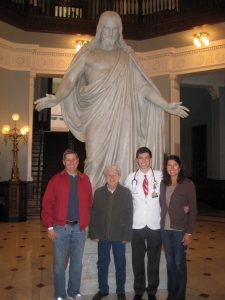
The Deys know firsthand the importance of taking a year for discovery. Their son, Jacob, now a fellow and clinical instructor in Hopkins’ Division of Facial Plastic and Reconstructive Surgery, participated in the Dean’s Year of Research during his time at JHSOM and helped inspire the creation of the memorial fund.
“I hope they have a chance to figure out where their love is in medicine,” Charity says. “I hope these brilliant minds will have the time to investigate, research, and help people.”
The Deys add they are honored to help the number of students who can participate in the Dean’s Year of Research. Currently, JHSOM can only fund about half of the students who apply each year.
For Beach, who works directly with the young researchers, supporting medical student investigations is a high-value gift. While the opportunity is great for the students, it also has a long-lasting impact on the field.
“When you invest in a project, it could have a good outcome. It could make a difference,” she says. “But when you care about a field and want to support a student who is going to work in that field, you’re investing in a person who’s then going to go and change the world.”
Topics: School of Medicine, Fuel Discovery, Support Scholars